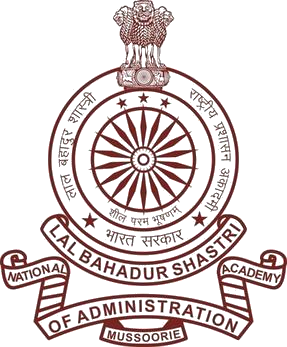
Lal Bahadur Shastri was an Indian politician and statesman who served as the 2nd Prime Minister of India from 1964 to 1966 and 6th Home Minister of India from 1961 to 1963. He promoted the White Revolution – a national campaign to increase the production and supply of milk – by supporting the Amul milk co-operative of Anand, Gujarat and creating the National Dairy Development Board. Underlining the need to boost India's food production, Shastri also promoted the Green Revolution in India in 1965. This led to an increase in food grain production, especially in the states of Punjab, Haryana and Uttar Pradesh.

Kasumigaseki is a district in Chiyoda Ward in Tokyo, Japan. It is the location of most of Japan's cabinet ministry offices. The name is often used as a metonym for the Japanese government bureaucracy, while Nagatachō refers to the elected government or the legislative branch. Kasumigaseki Station was one of the stations affected during the Tokyo subway sarin attack.
The Government of India, known as the Union Government or Central Government but often simply as the Centre, is the national authority of the Republic of India, a federal democracy located in South Asia, consisting of 28 union states and eight union territories. Under the Constitution, there are three primary branches of government: the legislative, the executive and the judiciary, whose powers are vested in a bicameral Parliament, President, aided by the Council of Ministers, and the Supreme Court respectively. Through judicial evolution, the Parliament has lost its sovereignty as its amendments to the Constitution are subject to judicial intervention. Judicial appointments in India are unique in that the executive or legislature have negligible say.

Panjab University (PU) is an Indian collegiate public state university located in Chandigarh. Funded through both State and Union governments, it is considered a state university. It traces its origins to the University of the Punjab in Lahore, which was founded in 1882. After the partition of India, the university was established on October 1, 1947, and called East Punjab University. Initially housed primarily at a cantonment in Solan, it later relocated to a newly built campus in Chandigarh, and was renamed Panjab University.

The West Bengal National University of Juridical Sciences is a National Law University located in Bidhannagar, Kolkata, West Bengal, India. In 2021, it was ranked fourth among law colleges in India by National Institutional Ranking Framework and second by India Today. It comes under the exclusive chancellorship and purview of the Chief Justice of India.

The Minister of Home Affairs is the head of the Ministry of Home Affairs of the Government of India. One of the senior-most officers in the Union Cabinet, the chief responsibility of the Home Minister is the maintenance of India's internal security; the country's large police force comes under its jurisdiction. Occasionally, they are assisted by the Minister of State of Home Affairs and the lower-ranked Deputy Minister of Home Affairs.

The Government of Maharashtra is the state governing authority for the state of Maharashtra, India. It is a democratically elected government with 288 MLAs elected to the Vidhan Sabha for a five-year term.

National Institute of Technology, Raipur is a public technical and research university located in Raipur, the capital of Chhattisgarh. Founded in 1956 with two engineering disciplines, namely Mining Engineering and Metallurgical Engineering, the institute focuses exclusively on science, technology, engineering, and architecture.

Lal Bahadur Shastri National Academy of Administration (LBSNAA) is a civil service training institute on public policy and public administration in Musoorie, Uttarakhand in India. The academy's main purpose is to train civil servants of the IAS cadre and also conduct the Foundation Course of Group-A Central Civil Services. After completion of training, the trainee officers of IAS cadre are awarded an MA from Jawaharlal Nehru University, Delhi. It has been functioning under the Ministry of Personnel, Public Grievances and Pensions since 1985.
The anti-Hindi-imposition agitations in Tamil Nadu were a series of agitations that happened in the Indian state of Tamil Nadu during both pre- and post-independence periods. The agitations involved several mass protests, riots, student and political movements in Tamil Nadu concerning the official status of Hindi in the state.

The Ministry of External Affairs of India is the government agency responsible for implementing Indian foreign policy. The Ministry of External Affairs is headed by the Minister of External Affairs, a Cabinet Minister. The Foreign Secretary, an Indian Foreign Service officer, is the most senior civil servant who is the head of the Department of Foreign Affairs. The Ministry represents the Government of India through embassies and is also responsible for India's representation at the United Nations and other international organizations and expanding and safeguarding India’s influence and Indian interests across the world by providing developmental aid to other countries worth billions of dollars. It also advises other Ministries and State Governments on foreign governments and institutions.
The Ministry of Law and Justice in the Government of India is a cabinet ministry which deals with the management of the legal affairs, legislative activities and administration of justice in India through its three departments namely the Legislative Department and the Department of Legal Affairs and the Department of Justice respectively. The Department of Legal Affairs is concerned with advising the various Ministries of the Central Government while the Legislative Department is concerned with drafting of principal legislation for the Central Government. The ministry is headed by Cabinet Minister of Law and Justice Kiren Rijiju appointed by the President of India on the recommendation of the Prime Minister of India. The first Law and Justice minister of independent India was Dr. B. R. Ambedkar, who served in the Prime Minister Jawaharlal Nehru's cabinet during 1947–51.
The Ministry of Personnel, Public Grievances and Pensions is a ministry of the Government of India in personnel matters specially issues concerning recruitment, training, career development, staff welfare as well as the post-retirement dispensation.
Ratan Shastri, also called Ratandevi Shastri, was founder of Banasthali Vidyapith and a notable champion of women education. She was a notable woman freedom fighter of Rajputana and wife of Hiralal Shastri, first Chief Minister of Rajasthan. She was a recipient of Padma Shri in 1955, Padma Bhushan in 1975, and Jamnalal Bajaj Award for outstanding contribution in the field of uplift and welfare of women and children in 1990. Ratan Shastri was a strong pillar of Parajamandal Movement in Jaipur state during the Indian national Movement. She was a champion of female education and started a woemen school, that later developed into a university, that contributed immensely to encourage and support female education in Rajasthan. She was a staunch adherent of Gandhian ideals and promoted Khadi.
Dr. Mandan Mishra was a noted Sanskrit scholar from India and founder of Shri Lal Bahadur Shastri Rashtriya Sanskrit Vidyapeetha. In 2000 he was awarded Padma Shri by Government of India for his excellent and devoted work in the field of Sanskrit.

Fali Sam Nariman is an Indian jurist. He is the senior advocate to the Supreme Court of India since 1971 and was the President of the Bar Association of India from 1991 to 2010. Nariman is an internationally recognised jurist on international arbitration. He has been honored with the 19th Lal Bahadur Shastri National Award for Excellence in Public Administration 2018. He is one of India's most distinguished constitutional lawyers and he has argued several leading cases. He remained Additional Solicitor General of India May 1972- June 1975.
Rahim Fahimuddin Dagar was an exponent of Dagar vani Dhrupad of Indian classical music. He represented the 19th generation of Dagar Tradition. His cousins Nasir Moinuddin Dagar and Nasir Aminuddin Dagar were known as the Senior Dagar Brothers. Similarly, Nasir Zahiruddin and Nasir Faiyazuddin Dagar were known as the Junior Dagar Brothers. His other cousins were Zia Mohiuddin Dagar, Fariduddin Dagar, and H. Sayeeduddin Dagar.
Rashtriya Uchchattar Shiksha Abhiyan (RUSA) is a holistic scheme of development for higher education in India initiated in 2013 by the Ministry of Education, Government of India. The centrally sponsored scheme aims at providing strategic funding to higher educational institutions throughout the country. Funding is provided by the central ministry through the state governments and union territories (UT), which in coordination with the central Project Appraisal Board will monitor the academic, administrative and financial advancements taken under the scheme. A total of 316 state public universities and 13,024 colleges will be covered under it.
Dahyabhai Shastri is an Indian scholar of Sanskrit and the founder of Brahmarshi Sanskrit Mahavidyalaya, Nadiad. He is also a former president of the Gujarat state unit of the Vishwa Hindu Parishad. Born in Vasai Dabhla, a small village in Mehsana district of Gujarat and did his studies in Sanskrit in Ahmedabad and Varanasi, Shastri chairs the Veda Centre, Pardi. He is known for contributions in interpreting Sanskrit grammar and literature and is a recipient of Gujarat State Award. The Government of India awarded him the fourth highest civilian honour of the Padma Shri, in 2016, for his contributions to Literature and education.

Mohammed Hanif Khan Shastri was an Indian Sanskrit scholar. He is winner of National Communal Harmony Award, in the individual category for the year 2009. The Government of India awarded him fourth highest civilian award Padma Shri in 2019. He has been professor at Rashtriya Sanskrit Sansthan.












